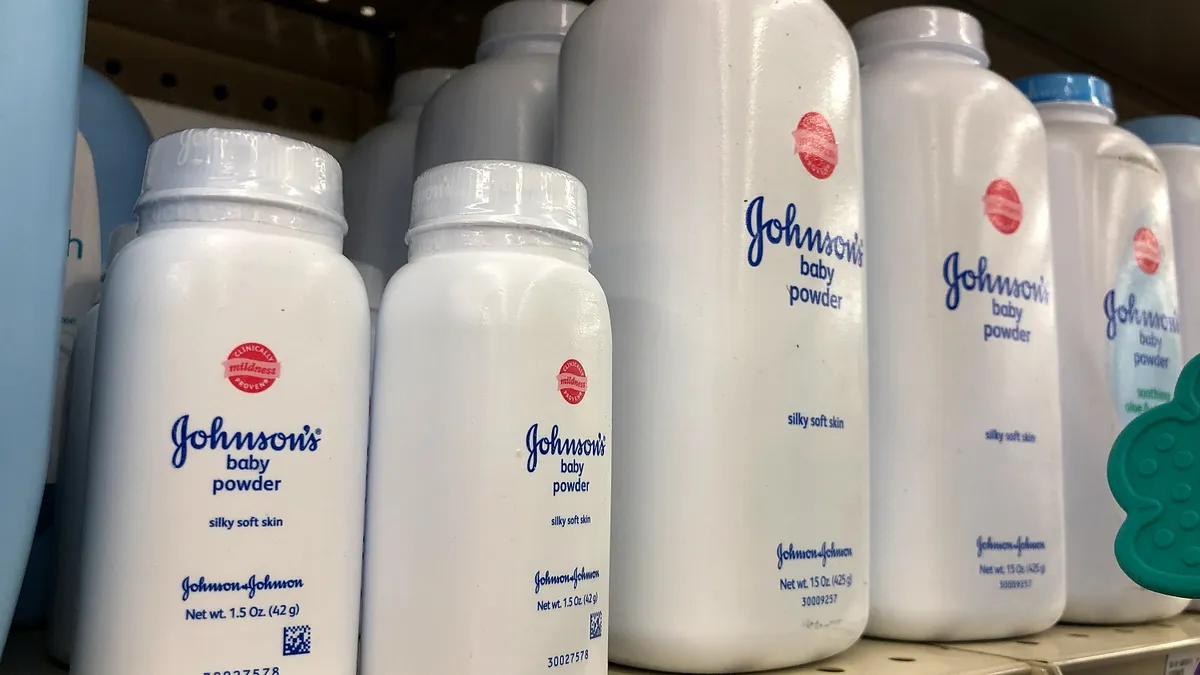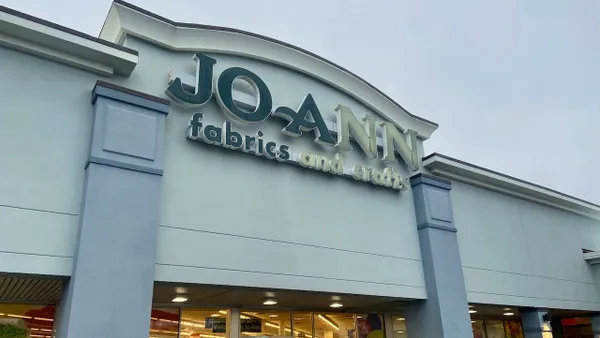Dive Brief:
- Consumer products giant Johnson & Johnson will pay $700 million to settle allegations made by more than 40 state attorneys general that the company misled people about the safety of its talc-based baby powder, the company’s CFO Joseph Wolk confirmed with The Wall Street Journal January 23.
- Wolk told the Journal the settlement is an “important step” to “reasonably put the matter behind us.”
- The settlement is separate from the company’s far-larger legal exposure from some 52,000 private lawsuits that hang over it, potentially costing it billions of dollars to put an end to claims that talc, which it has since replaced with cornstarch, contains trace amounts of asbestos and causes cancer. The company has been trying for years to resolve the claims through a bankruptcy settlement.
Dive Insight:
The company disclosed the state AG investigation into its talc business in the Form 10-Q it submitted in the third quarter of last year.
The AGs accuse the company of hiding links between the talc in its powder and cancer, Bloomberg Law reported last week. Details of the settlement haven’t been released. The company originally set aside $400 million to settle with the AGs, the Bloomberg report says, but in his interview with the Journal, Wolk confirmed the $700 million amount.
The company has said it would take its effort to settle the far-higher private claims as part of a bankruptcy plan to the Supreme Court after an appeals court rejected the company’s latest attempt to use bankruptcy of a designated affiliate as its preferred way to work out the claims.
Under J&J’s plan, the spinoff, LTL Management, would assume all of the liability as its sole asset, sparing the parent company the hit the claims are having on its stock valuation.
“Good intentions — such as to protect the J&J brand or comprehensively resolve litigation — do not suffice alone” to make bankruptcy an appropriate step, Judge Thomas Ambro of the 3rd Circuit Court of Appeals said in the unanimous decision last year. “What counts to access the Bankruptcy Code’s safe harbor is to meet its intended purposes. Only a putative debtor in financial distress can do so. LTL was not. Thus we dismiss its petition.”
The company denies any connection between its talc and the cancer of tens of thousands of users, most of them women, and has won most of the cases that have gone to trial.
It says the bankruptcy process is in the interest of both the company and claimants, because it can resolve the cases quicker and more equitably than if the company litigated the cases separately. It has offered to settle all claims through bankruptcy for about $9 billion. Some estimates put the settlement amount outside the bankruptcy process much higher, possibly as much as $190 billion.














